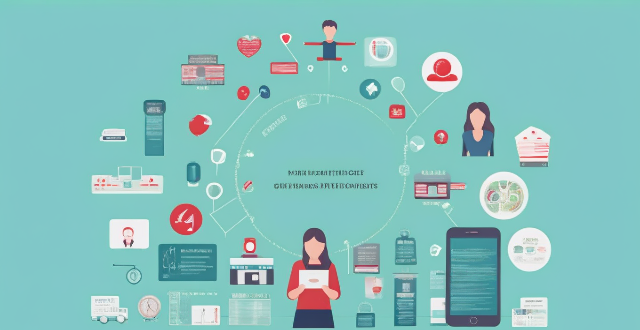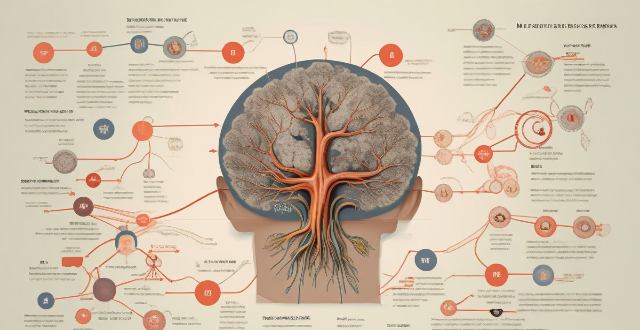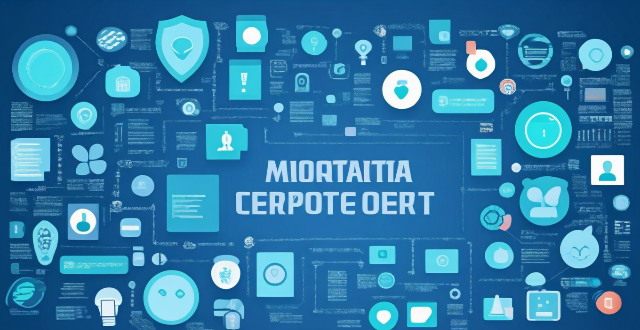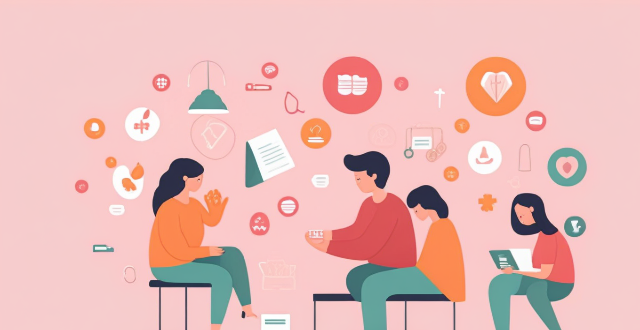Excessive Addiction

Is there a correlation between the amount of time spent on sports and the incidence of gaming addiction ?
The text discusses the potential correlation between gaming addiction and excessive time spent on sports, considering displacement theory, common underlying factors, lack of social support, and cultural influences. It highlights the need for further research to understand this relationship better and develop prevention and treatment strategies for both conditions.

Is social media addiction a real problem, and how can it be addressed ?
Social media addiction is a growing problem with significant impacts on mental health, relationships, and productivity. Recognizing the signs of addiction, such as excessive use or neglecting important activities, is crucial for addressing the issue. The negative effects include mental health issues, relationship problems, and reduced productivity. To combat social media addiction, individuals can set limits on usage, find alternative activities, practice mindfulness, and seek professional help if needed.

How can sports and physical activities help prevent internet gaming addiction ?
Sports and physical activities can help prevent internet gaming addiction by offering alternative forms of entertainment, promoting mental and physical well-being, and fostering social connections. Strategies for incorporating sports include setting fitness goals, choosing enjoyable activities, and involving family or friends to make it a sustainable part of one's lifestyle.

Are there specific types of sports that are more effective in preventing internet gaming addiction ?
The article discusses the issue of internet gaming addiction and how sports can be an effective solution. It explains the benefits of physical activity, including improved health and social connections, which can help prevent addiction. The article then lists four types of sports that are particularly effective in preventing addiction: outdoor adventure sports, team sports, individual sports with goals, and yoga/mindfulness practices. Overall, the article emphasizes the importance of engaging in physical activities to promote a healthy lifestyle and combat addiction.

Can regular exercise be an effective way to prevent excessive online gaming ?
Regular exercise can help prevent excessive online gaming by improving mental health, increasing self-control, enhancing social interaction, and improving sleep quality. While it may not completely eliminate gaming behaviors, it serves as a valuable tool in promoting overall well-being and reducing reliance on online gaming as a primary source of entertainment and social interaction.

What are the benefits of participating in sports to reduce the risk of video game addiction ?
Participating in sports can have numerous benefits for individuals who are at risk of developing a video game addiction. These include increased physical activity, social interaction, time management, mental health benefits, and the development of life skills. By engaging in sports, individuals can find a healthy balance between gaming and other activities, leading to a more fulfilling and well-rounded lifestyle.

Can excessive exercise lead to sleep disorders ?
Overtraining can cause sleep disorders by disrupting normal sleep patterns and causing physical stress and fatigue. Relaxation techniques such as meditation, yoga, or deep breathing exercises can help calm your mind and body before bed. Adjusting your exercise routine and creating a consistent sleep schedule can also improve sleep quality. If you continue to experience sleep disturbances, consult with a healthcare professional for further evaluation and treatment.

How can I distinguish between normal nervousness and excessive test anxiety ?
Normal nervousness is a natural response to stress, while excessive test anxiety can have negative effects on performance and well-being. Signs of excess test anxiety include excessive worry, avoidance behavior, physical symptoms, negative self-talk, and behavioral changes. Seeking help from a trusted source can provide guidance and support to manage anxiety and improve performance.

Can excessive sports participation harm a child's physical development ?
Overtraining in sports can lead to physical injuries, psychological stress, and hindered social interaction in children. It is important to ensure a balanced approach to sports participation, emphasizing rest, proper training techniques, and mental health support.

Can excessive training have negative effects on the immune system ?
Excessive training, or overtraining, can have negative effects on the immune system. Regular exercise enhances immune function by stimulating antibody and white blood cell production, reducing inflammation, and improving circulation. However, excessive training can cause chronic inflammation, oxidative stress, and hormonal imbalances that suppress immune function. Signs of overtraining syndrome include chronic fatigue, mood changes, and increased susceptibility to illness. To prevent overtraining and maintain immune health, individuals should follow a balanced training program, prioritize sleep, eat a nutrient-rich diet, and manage stress levels.

How can schools incorporate sports programs to combat gaming addiction among students ?
Schools can combat gaming addiction among students by incorporating sports programs, promoting physical activity, and mental well-being. Strategies include promoting sports programs, offering a variety of sports, integrating sports into the curriculum, organizing sports events, providing access to facilities and equipment, encouraging participation in extracurricular sports clubs, educating students about the benefits of sports, and collaborating with parents and community organizations.

What is the impact of social media on women's mental well-being ?
Social media has become an integral part of our daily lives, and it has both positive and negative impacts on women's mental well-being. In this article, we will discuss the various ways in which social media affects women's mental health. ### Negative Impacts: #### 1. **Comparison and Jealousy** One of the most significant negative impacts of social media on women's mental well-being is the constant comparison and jealousy that arises from seeing other people's highlight reels. Women often compare themselves to others on social media, leading to feelings of inadequacy and low self-esteem. This can result in anxiety, depression, and even eating disorders. #### 2. **Cyberbullying and Harassment** Social media platforms are also notorious for cyberbullying and harassment, particularly towards women. Online harassment can take many forms, including trolling, stalking, sexual harassment, and doxxing. These actions can have severe consequences on a woman's mental health, leading to trauma, anxiety, and depression. #### 3. **Addiction and Time Management** Social media addiction is another issue that affects women's mental well-being. Spending excessive time on social media can lead to procrastination, reduced productivity, and poor time management skills. This can cause stress, anxiety, and feelings of guilt, ultimately affecting a woman's overall mental health. #### 4. **Body Image Issues** Social media is flooded with images of perfect bodies and beauty standards, which can negatively impact a woman's body image. Constant exposure to these unrealistic beauty standards can lead to body dysmorphia, eating disorders, and low self-esteem. ### Positive Impacts: Despite the negative impacts, social media also has some positive effects on women's mental well-being. #### 1. **Support and Community** Social media provides a platform for women to connect with like-minded individuals and form supportive communities. These online communities can offer emotional support, advice, and encouragement, helping women cope with various issues they face in their personal and professional lives. #### 2. **Education and Awareness** Social media is an excellent source of information and education on various topics related to women's health, such as menstrual hygiene, reproductive rights, and breast cancer awareness. This increased awareness can empower women to make informed decisions about their health and well-being. #### 3. **Self-expression and Creativity** Social media platforms provide women with an opportunity to express themselves creatively through writing, photography, art, or other forms of content creation. This creative outlet can serve as a therapeutic tool for women to cope with stress, anxiety, or depression. #### 4. **Career Opportunities** Social media has opened up numerous career opportunities for women in fields such as digital marketing, content creation, and influencer marketing. These opportunities allow women to pursue their passions while maintaining flexible work schedules that accommodate their personal lives. In conclusion, social media has both positive and negative impacts on women's mental well-being. While it can lead to comparison, jealousy, cyberbullying, addiction, and body image issues, it also provides support, education, self-expression, and career opportunities. It is essential for women to be aware of these impacts and use social media mindfully to maintain their mental health and well-being.

What are the potential risks associated with mobile communication technology ?
The text discusses the potential risks associated with mobile communication technology, which include security risks such as data breaches and malware attacks, privacy risks like location tracking and surveillance, health risks including radiation exposure and eye strain, social risks such as addiction and cyberbullying, and economic risks involving high costs of data plans and job displacement. It emphasizes the importance of being aware of these risks and taking appropriate measures to mitigate them.

What are the risks associated with excessive exercise and how can they be managed ?
Overtraining can lead to a range of health problems and injuries such as overuse injuries, cardiovascular problems, immune system suppression, reproductive system issues, and mental health issues. To manage these risks, athletes should prioritize proper rest and recovery, gradually progress their training, maintain good nutrition and hydration, get regular medical check-ups, be aware of their mental health, and listen to their body's signals. By implementing these strategies, athletes can minimize the risks associated with excessive exercise and maintain their physical and mental well-being.

What role does team sports play in mitigating the risks associated with compulsive gaming ?
Team sports can mitigate the risks associated with compulsive gaming by encouraging healthy social interactions, increasing physical activity, developing time management skills, and reducing stress and anxiety.

What are the benefits and drawbacks of using online curriculums in home education ?
The article discusses the advantages and disadvantages of using online curriculums in home education. On the positive side, online learning offers flexibility, a wide range of options, personalized experiences, exposure to diverse cultures, and cost-effectiveness. However, it also presents challenges such as limited social interaction, technical issues, lack of hands-on learning opportunities, overreliance on technology, and concerns about quality control and accreditation.

What are the psychological benefits of participating in sports ?
Participating in sports can have numerous psychological benefits that extend beyond physical health. Here are some of the key advantages: - **Improved Mood and Reduced Stress**: Boosts endorphins, decreases cortisol levels, and helps to lower stress. - **Enhanced Self-Esteem and Confidence**: Achievement and mastery in sports boost self-esteem, while social interaction increases confidence. - **Better Sleep Quality**: Regular exercise leads to physical fatigue and relaxation, improving sleep patterns. - **Increased Resilience and Mental Toughness**: Overcoming adversity in sports builds resilience, while goal-oriented pursuits foster mental toughness. - **Social Support and Connection**: Teamwork and camaraderie provide a network of support, while shared experiences create bonds and friendships. - **Improved Cognitive Function**: Studies suggest regular exercise can lead to increased brain volume and improved cognitive function. - **Emotional Regulation and Coping Mechanisms**: Sports provide an outlet for expressing and managing emotions like anger or frustration, and athletes learn to cope with high-pressure situations. - **Positive Addiction and Avoidance of Unhealthy Habits**: Sports can become a positive addiction, replacing less healthy habits, and require time management, reducing idle time that could lead to unhealthy behaviors.

How does social media impact the development of teenagers ?
The article discusses the impact of social media on teenagers, highlighting both its positive and negative effects. The positive effects include connectivity, information and learning, and creativity and self-expression. However, the negative effects such as addiction, cyberbullying, and privacy risks are also significant concerns. The article emphasizes the need for responsible and safe use of social media by teenagers.

What are the best practices for maintaining good personal health ?
Maintaining good personal health is essential for a happy and fulfilling life. Best practices include regular exercise, eating a balanced diet, getting adequate sleep, managing stress, having regular check-ups, avoiding harmful habits, and staying hydrated. Incorporating these practices into daily routines can help achieve optimal physical and mental well-being.

How can parents monitor their children's social media use effectively ?
Social media has become an integral part of children's lives, posing risks like cyberbullying and inappropriate content exposure. Effective monitoring by parents is crucial for ensuring their safety. Strategies include establishing open communication, educating children about online safety, using parental control tools, setting boundaries and limits, encouraging offline activities, and staying involved and updated. These measures can foster trust and understanding while promoting safe and responsible social media use among children.

How does bullying affect the emotional and social development of adolescents ?
Bullying can have severe emotional and social effects on adolescents, including low self-esteem, depression and anxiety, difficulty making friends, trouble trusting others, aggression towards others, school avoidance, social withdrawal, problems with authority figures, substance abuse, and criminal behavior. It is important for parents, educators, and other adults to recognize the signs of bullying and take steps to prevent it from occurring in order to ensure that adolescents grow up to be healthy, well-adjusted adults.

How does stress affect women's mental health ?
This text discusses the effects of stress on women's mental health, including anxiety and depression, sleep disturbances, emotional eating, low self-esteem, difficulty concentrating, irritability and mood swings, substance abuse, and physical health issues. It emphasizes the importance of self-care practices to manage stress effectively.

What impact has the pandemic had on mental health and well-being ?
The COVID-19 pandemic has significantly impacted mental health and well-being, leading to increased stress, anxiety, depression, insomnia, and substance misuse. Factors such as fear of infection, financial instability, social isolation, grief, and disruption of daily routines contribute to these issues. The situation emphasizes the need for accessible mental health services and support systems to address psychological needs during this challenging period.

What are the effects of domestic violence on women's mental health ?
Domestic violence has severe and long-lasting impacts on women's mental health, including depression, anxiety, post-traumatic stress disorder (PTSD), and substance abuse. It is crucial for healthcare providers to screen for signs of domestic violence and provide appropriate support services for affected women.